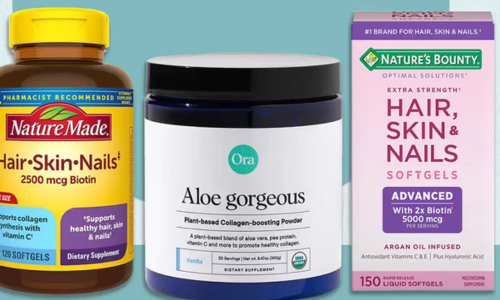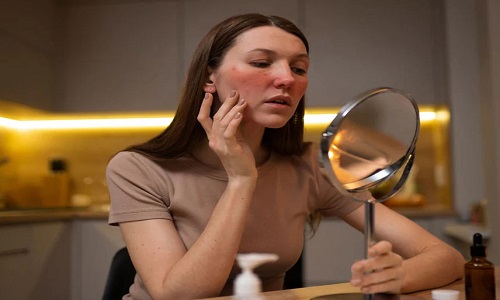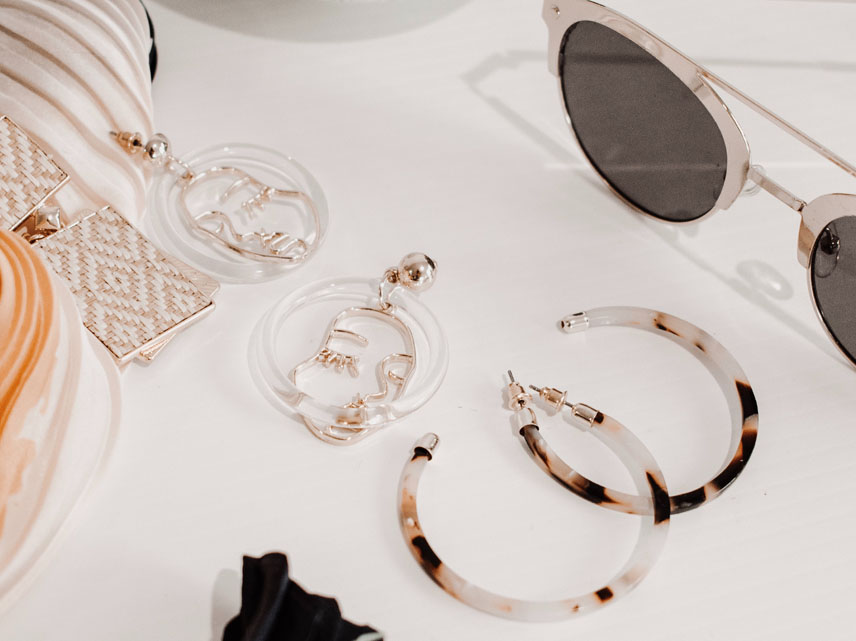Beauty Sleep: How Rest Affects Your Skin and Body
We’ve all heard the phrase “beauty sleep” tossed around, but what does it really mean? It’s not just a catchy expression—it’s grounded in science.

Recent Blogs
- Home Design Tips You’ll Wish You Knew Sooner
- How to Detox Without Starving Yourself
- Must-Have Accessories for Every Season in 2025
- 10 Skincare Mistakes You Might Be Making
- The Best Morning Routine for Clearer Skin and More Energy
- From Drab to Fab: Easy Living Room Makeovers
- How to Make Your Home Look Luxurious Without Breaking the Bank
May 25 22
Introduction: The Secret to Glowing Skin and Good Health
We’ve all heard the phrase “beauty sleep” tossed around, but what does it really mean? It’s not just a catchy expression—it’s grounded in science. Sleep is a crucial component of self-care, affecting not only your mood and energy levels but also the health and appearance of your skin and body. While you sleep, your body enters repair and regeneration mode, working hard to restore and rejuvenate both inside and out.
In this blog, we’ll dive into how beauty sleep impacts your skin, body, and overall health, and why prioritizing rest is just as important as your skincare routine.
What Happens to Your Body During Sleep?
The Stages of Sleep and Their Benefits
Sleep is made up of several stages, each serving a unique purpose for physical and mental restoration. Understanding these stages can help you realize just how important sleep is for your overall health:
- Stage 1 (Light Sleep): This is the stage where your body begins to relax, and your heartbeat and breathing slow down. It’s essential for calming your mind.
- Stage 2 (Deeper Sleep): During this stage, your body temperature drops, and your muscles relax. It’s a critical phase for memory consolidation and cellular repair.
- Stage 3 (Deep Sleep): This is when your body and mind undergo the most significant repair work. The immune system strengthens, muscles rebuild, and cells regenerate.
- REM Sleep: Rapid eye movement (REM) sleep is when your brain is most active. While this stage is crucial for memory, learning, and emotional processing, it also aids in skin regeneration.
While you sleep, your body produces growth hormones, tissue regeneration occurs, and your skin begins the process of repair, which can significantly impact your appearance. Now, let’s look more closely at the ways in which beauty sleep affects your skin and body.
How Beauty Sleep Affects Your Skin
Cell Regeneration and Repair
Your skin works hard to repair itself overnight. While you sleep, your body produces collagen, the protein responsible for maintaining skin elasticity and preventing wrinkles. Collagen production is at its peak during sleep, especially during deep sleep stages.
As your skin regenerates, it also repairs any damage caused by environmental stressors such as UV rays, pollution, and harsh weather. The body also produces important growth factors that aid in tissue repair, helping to heal skin damage faster.
Tip: If you’re looking to enhance collagen production, consider using a night cream rich in retinol or peptides. These ingredients promote skin renewal and can complement your natural regenerative processes while you sleep.
Improved Skin Tone and Texture
Adequate sleep helps balance hormones that regulate your skin’s oil production. Insufficient rest can lead to an increase in cortisol levels, which may trigger acne flare-ups, dryness, or uneven skin tone. When you’re well-rested, your skin has a better chance to maintain its natural balance.
During sleep, blood flow to the skin increases, which helps deliver nutrients and oxygen to skin cells. This boosts your skin's ability to heal and regenerate, resulting in a brighter and more even complexion by morning.
Tip: A consistent sleep routine of 7-9 hours can help keep your skin healthy and glowing. Lack of sleep can lead to puffy eyes, dark circles, and a dull complexion, so getting enough rest is key.
Reducing Puffiness and Dark Circles
A lack of sleep can lead to fluid retention, which can cause your face, especially the under-eye area, to appear puffy and swollen. Dark circles can also become more prominent when you’re sleep-deprived, as blood vessels around the eyes dilate.
During sleep, your body has the opportunity to remove excess fluids, which reduces puffiness and allows your skin to naturally drain away toxins. The result? Less noticeable under-eye bags and a fresher, more youthful appearance.
Tip: Elevate your head slightly while sleeping to help prevent fluid buildup around your eyes.
How Beauty Sleep Impacts Your Body
Physical Repair and Muscle Recovery
Just like your skin, your body undergoes physical repair while you sleep. Deep sleep is when muscle recovery and repair occur. Whether you're an athlete or someone who enjoys regular physical activity, your muscles rely on sleep to heal and grow.
This is particularly important if you’re working out regularly. The body produces growth hormones during sleep that help repair muscle fibers, making sleep a critical part of any fitness regimen. Insufficient rest can delay recovery and lead to fatigue, soreness, and even injury.
Tip: Make sure to get enough rest after intense physical activity to maximize muscle repair and growth.
Hormonal Balance and Weight Management
Sleep plays a significant role in maintaining hormonal balance, which in turn affects everything from your mood to your metabolism. During sleep, your body regulates important hormones like cortisol (the stress hormone), ghrelin (which controls hunger), and leptin (which signals satiety).
When you don’t get enough sleep, these hormones can become imbalanced, leading to increased cravings for unhealthy foods, weight gain, and a slowed metabolism. Regular sleep helps your body maintain healthy levels of these hormones, reducing your chances of overeating and promoting better weight management.
Tip: Aim for 7-9 hours of sleep per night to help balance your hunger hormones and support a healthy metabolism.
Immune System Function
Your immune system is highly active during sleep. Adequate rest helps your body produce cytokines, which are proteins that fight infections, inflammation, and stress. Chronic sleep deprivation can weaken your immune system, making you more susceptible to illness and impairing the body’s ability to heal.
If you're getting sick or recovering from an illness, sleep is vital to your body’s ability to fight infection and recover quickly.
Tip: Prioritize rest, especially during cold and flu season, to ensure your body has the energy and support it needs to heal efficiently.
How to Maximize Your Beauty Sleep
Create a Restful Sleep Environment
To reap the full benefits of beauty sleep, creating an environment conducive to restful sleep is essential. Here’s how you can enhance your sleep environment:
- Comfortable Mattress and Pillows: Choose a mattress and pillows that support proper alignment and comfort.
- Darkness: Use blackout curtains or an eye mask to block out light, which can disrupt melatonin production.
- Cool Temperature: Keep your bedroom cool (around 65°F or 18°C), as your body rests better in a cooler environment.
- Reduce Screen Time: Avoid blue light from screens before bed. The light can interfere with melatonin levels, making it harder to fall asleep.
Stick to a Sleep Schedule
Your body thrives on routine. Try to go to bed and wake up at the same time every day, even on weekends. Consistency helps regulate your circadian rhythm, ensuring deeper, more restorative sleep.
Conclusion: The Power of Beauty Sleep
Beauty sleep isn’t just an old wives' tale—it’s backed by science. When you prioritize sleep, your skin, body, and mind all benefit. From improved skin texture to enhanced muscle recovery and hormonal balance, getting enough rest is one of the most effective ways to maintain your beauty and health.
So, if you’re looking for a natural way to enhance your glow and improve your well-being, don’t underestimate the power of sleep. Create a sleep-friendly environment, stick to a consistent routine, and let your body do the rest.
Comment:
Your email address will not be published. Required fields are marked *
Our Top Picks
No products found.








